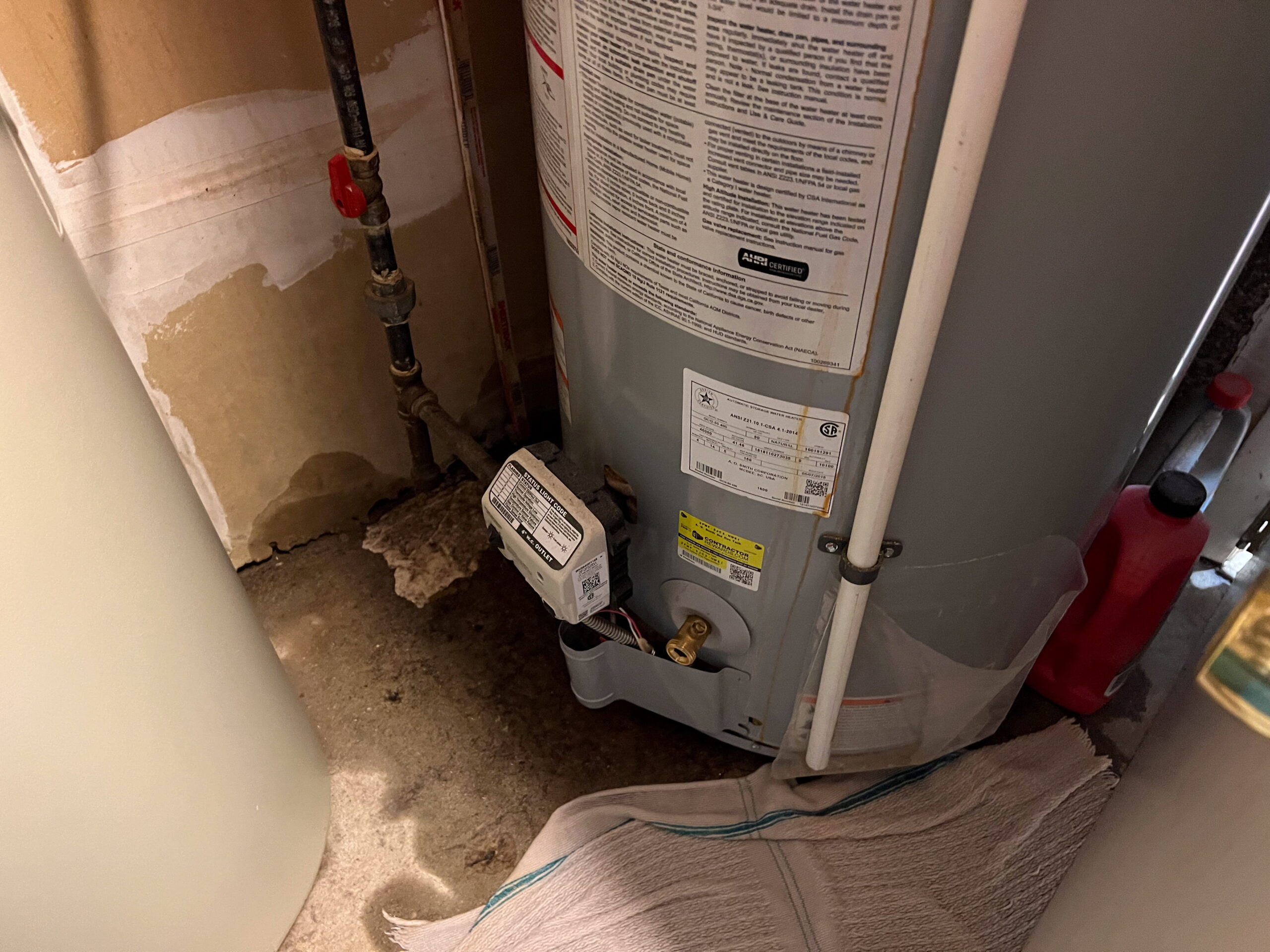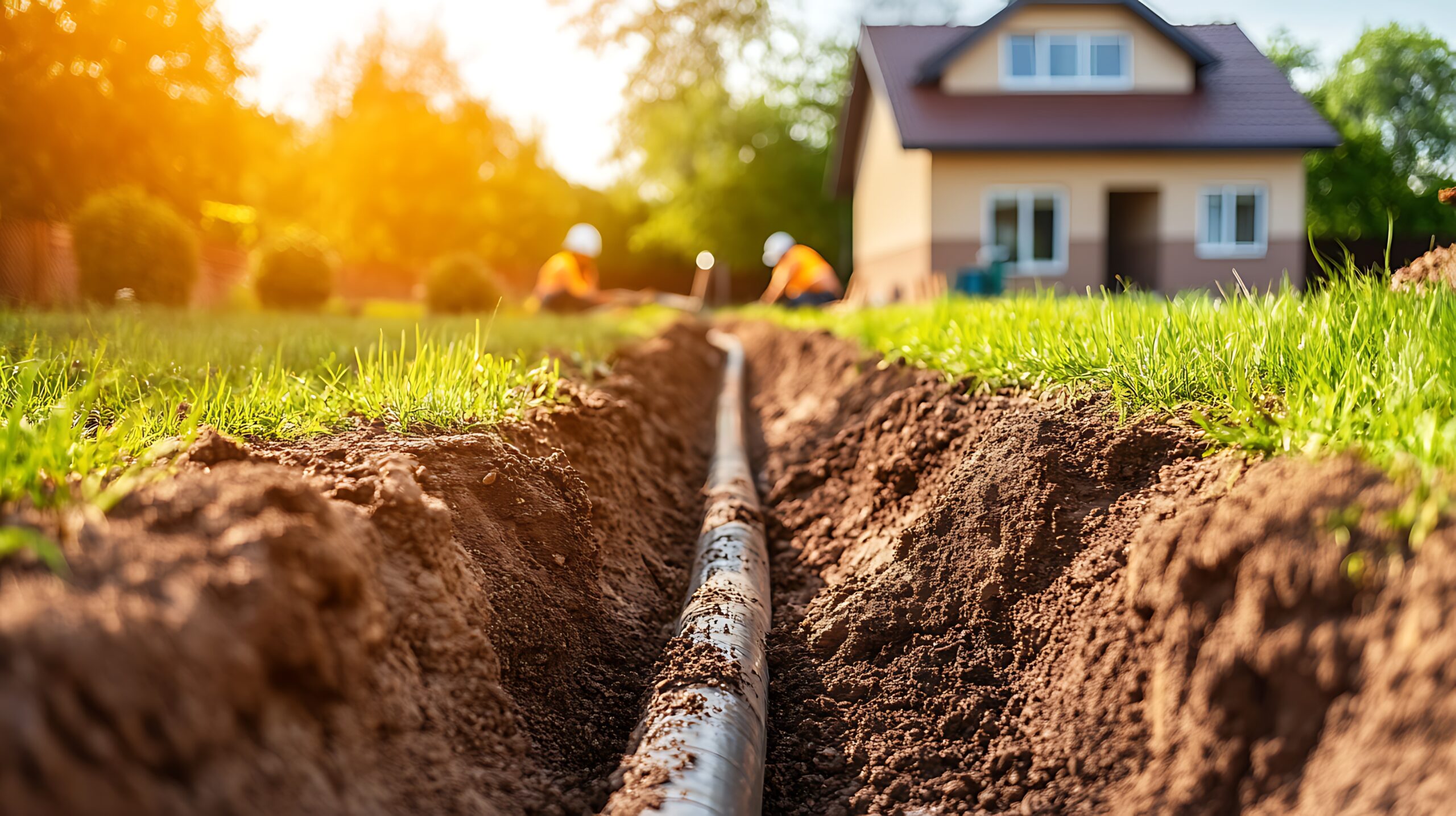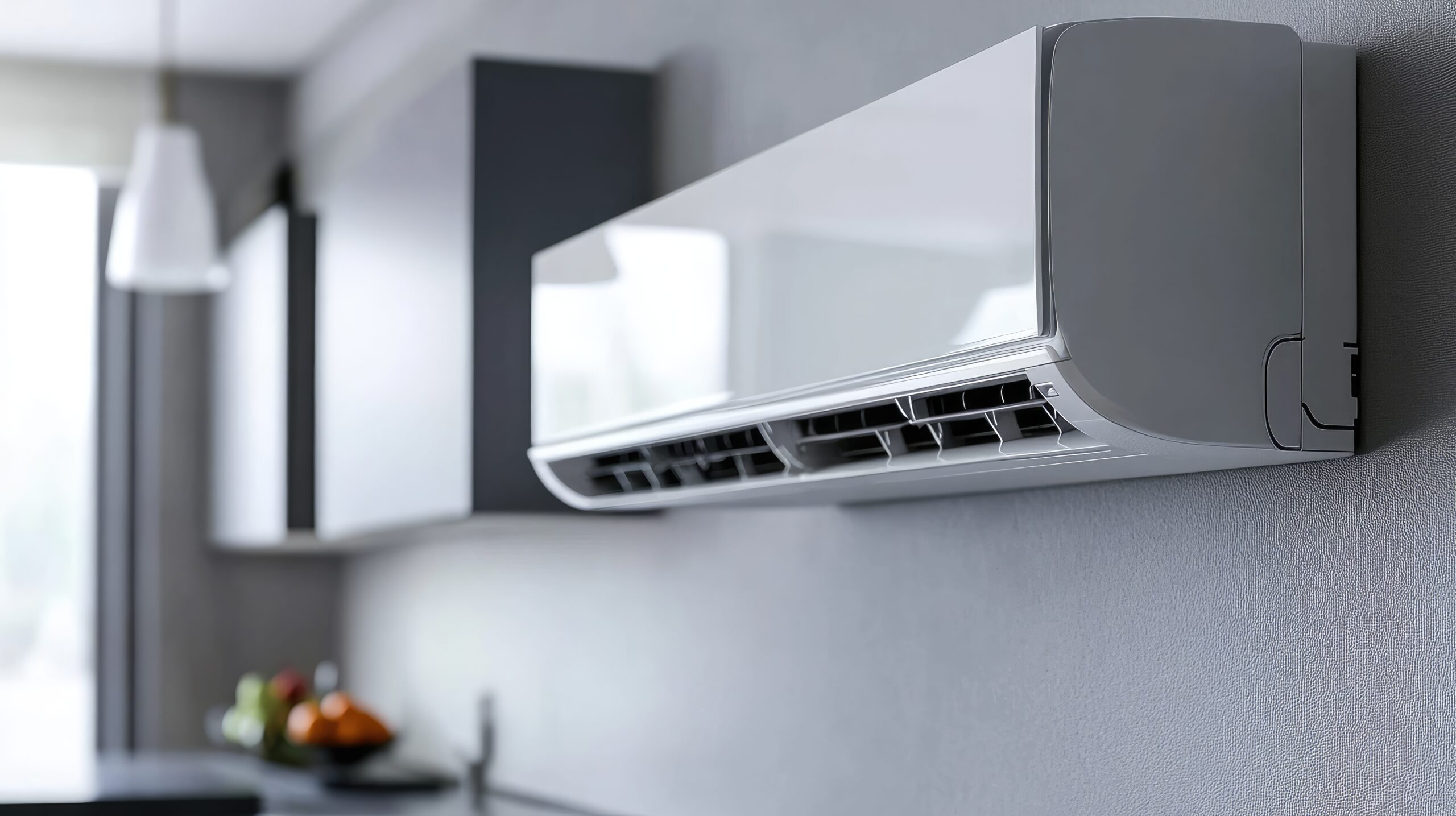|
Getting your Trinity Audio player ready...
|
Last Revised: 4/8/25
Do you see water pooling around your water heater and wonder if it’s a simple fix or something more serious? Is your system still giving you hot water, but you’re not sure for how long?
A leaking water heater creates both stress and confusion, and most homeowners are left uncertain if they can patch it up or if a flood is coming.
At Mattioni, we don’t think it has to be overwhelming. We’ve spent over 75 years helping families make smart, informed decisions about their home systems. Our experts know exactly what to look for in a leaking water heater and can guide you forward with confidence.
In this article, we’ll walk you through:
- How to identify if your leak is repairable
- How the location of the leak reveals the condition of the system
- When replacement is the safer, smarter option
- The risks of waiting too long to replace your water heater
- What to expect from a professional inspection
Let’s start by looking at situations where a leaking water heater may be able to be repaired.
When You May Be Able to Repair Your Water Heater
Not every leaking water heater needs to be replaced. A repair might be all that’s needed if the unit is still relatively young, and the leak is due to a replaceable part rather than a structural failure.
A Repair Might Be Enough If:
- The unit is less than 10 years old
- The leak is coming from a replaceable part
- There are no additional signs of system failure
Common Replaceable Parts:
- Burner assembly
- Heating elements
- Valves
- Anode rod
- Thermostats
- Thermocouples
- Igniters
- Fan assemblies
A technician can identify if one of these parts is causing the problem and whether replacing it is a viable long-term solution.

How Leak Location Reveals If You Need a New Water Heater
The location of the leak can tell you a lot about what’s going on and what you’ll need to do about it.
Leaking from the Top of the Tank
If the leak is coming from the top of the tank, it might not be as serious a concern as it seems. These issues are typically repairable, especially if caught early. A professional plumber can inspect and fix these components without replacing the entire unit. Common culprits of a leak at the top of the tank include:
- Loose or corroded cold or hot water connections
- Faulty temperature and pressure relief valves
- Leaking anode rod access
Leaking from the Bottom of the Tank
If the leak is coming from the bottom of the tank, the situation may be more critical. This is often a sign of:
- Internal corrosion
- A failing tank liner
- Sediment buildup leading to overheating and cracking
In most of these cases, replacement is usually the safest and most cost-effective solution.
Should You Repair or Replace Your Leaking Water Heater?
Use This 4-Point Checklist
Here’s a simple checklist to help you determine your next steps:
- Is your unit under 10 years old?
- Is the leak coming from a connection or valve?
- Do you still get consistent hot water?
- Are there no strange noises or discolored water?
If you answered “No” to most of these, it’s time to consider a replacement.
When to Replace Your Leaking Water Heater
Some water heater leaks can be repaired, but in some situations, replacing the system is not only smarter financially, but also safer for your home. If your water heater is leaking from the bottom of the tank, here are some other key indicators that it’s time to reinvest in a new system.
1. The Unit is Over 10 Years Old (15 Years Old for Tankless Systems)
Tank-type water heaters have a typical lifespan of 9-11 years (15 years for tankless models). As they age, the internal components begin to wear down, and the risk of serious issues increases. If your unit is leaking and has already passed its anticipated lifespan, investing in a new, energy-efficient model can help you avoid further inconvenience.
2. It Has Not Been Properly Maintained
Routine maintenance, like checking the tank’s anode rod or flushing a tankless system, helps prevent sediment buildup, corrosion, and other problems. However, contrary to popular belief, flushing a tank-type water heater isn’t recommended.
If your water heater hasn’t been maintained regularly, internal damage may have already taken its toll. A leak in a poorly managed unit is often a symptom of deeper issues that can’t be fixed with a simple part replacement.
3. There Are Additional Signs of System Failure
A leak alone is a concern – but when combined with other warning signs, it’s a strong indication that the water heater is on its last legs. Be on the lookout for:
- Rusty or discolored water, which could indicate internal corrosion
- Inconsistent hot water or running out of hot water faster than usual
- Strange noises, like banging or rumbling, are caused by sediment hardening in the tank
These symptoms often mean the water heater’s structural integrity and performance are compromised. Repairing a system that’s showing multiple signs of failure is likely a short-lived solution – and replacement is the more cost-effective, reliable option.

What Can Happen If You Don’t Replace a Leaking Water Heater?
Delaying the replacement of a leaking water heater might seem like the best way to save money, but waiting too long can lead to much bigger problems. Here’s what’s at stake:
1. Water Damage to Your Home
A slow leak today can become a major flood tomorrow. A slow leak can be a blessing in disguise as it alerts you that your water heater is running into larger problems, instead of the tank failing altogether without a warning first. Don’t make the mistake of ignoring this red flag.
Once the tank does give out, it can let loose dozens of gallons of water in a matter of minutes, causing damage to flooring, drywall, furniture, and personal property. This often leads to expensive repairs, insurance claims, and the loss of irreplaceable belongings.
Click here to learn how a leak detection system can save you thousands.
2. Mold and Mildew Growth
Moisture from ongoing leaks creates the perfect environment for mold and mildew, especially in hidden or poorly ventilated areas like basements or utility closets (where water heaters are usually kept). Mold not only damages materials but can also pose serious health risks, especially for people with allergies or respiratory conditions.
If you have household mold concerns, consider installing a dehumidifier to address the issue.
3. Higher Energy Bills
A failing water heater that’s full of sediment or has internal corrosion must work harder to do its job. This extra strain on the system means it uses more energy, which can lead to rising utility costs month after month – without even delivering consistent hot water.
4. Unexpected Hot Water Loss
Leaks often signal deeper internal issues that can lead to total failure. First, your hot water levels at sinks and showers will start to become less consistent. Then, if (and when) the system breaks down altogether, you’ll lose all hot water. This can be a significant inconvenience, especially during colder months or when you have guests.
Unfortunately, these situations happen to ordinary homeowners every day – which is why we always recommend replacing a leaking water heater before it fails completely. If you’re looking for more clarity about your water heater before making a decision, a professional inspection can give you more insight into the condition of the system.
5. Electrical Fires
While rare, a leaking water heater can pose a fire hazard – especially in electric models. Water and electricity are a dangerous combination, and if moisture comes into contact with electrical components like the thermostat, heating elements, or wiring, it can cause short circuits, sparks, or even an electrical fire.
What to Expect During an Inspection
When you call a professional plumber out to your home, here’s what they’ll look for in your water heater:
- Examine exterior components for rust, cracks, or loose fittings
- Inspect internal parts
- Check for sediment buildup and/or flush the tank
- Test the temperature and pressure valves, drain valve, and any ignition systems
A detailed inspection of your water heater provides clarity and ensures you’re not guessing with your home’s comfort. You can also have an inspection of your home’s entire plumbing system conducted while your plumber is at your home.
Repair vs. Replacement: What’s the Cost?
Putting a price tag on a water heater repair isn’t as straightforward as it might seem. Costs can vary from a few hundred to over a thousand dollars based on the extent of the damage and which parts need to be replaced.
The cost of a new unit, on the other hand, is easier to nail down – it varies most consistently by the type of water heater. Here are the prices for a new water heater at Mattioni:
- 50-gallon steel tank electric – Roughly $2,500
- 50-gallon steel tank propane – Roughly $3,000*
- 50-gallon steel tank natural gas – Roughly $3,250*
- 50-gallon Rheem Marathon – Roughly $4,000
- 50-gallon heat pump (electric hybrid) – Roughly $5,000
- Navien Tankless – Roughly $6,000
*Additional costs may be included for power vents
It’s safe to assume that the short-term cost of replacing your water heater is more expensive than a repair, but these aren’t the only costs to consider. It’s also vital to consider that you’ll potentially experience additional repair costs, higher utility costs, costs tied to potential flooding, and the cost of eventually replacing the system. Not to mention the lack of consistently heated water and the serious inconvenience of flooding, should you wait too long to replace it.
Be sure to factor in the age of the unit and maintenance history as you make your decision. Looking to get ahead of the curve with a new water heater? Following a proper maintenance routine with a VIP membership is the surest way to avoid problems and maximize your water heater’s lifespan.

Final Thoughts: Don’t Wait for a Leak to Turn into a Flood
Not every leak means full replacement is needed – but many do. If your unit is under 10 years old and the leak is stemming from a replaceable component (like a valve or heating element), a repair might be all that’s needed to get it back on track.
But in many cases, waiting too long to replace the unit can mean major damage, rising energy costs, and total hot water loss. In these cases, it’s not just about fixing a leak – it’s about safeguarding your comfort, home, and belongings from significant (and expensive) flooding.
At Mattioni, we’ve helped thousands of homeowners make smart, timely decisions about their systems. We’re here to do the same for you. Call us at (610) 400-8510 to schedule an inspection today.
We’ll walk you through your options with honesty and transparency, and help you choose the best path forward with confidence. Because you shouldn’t have to worry about a small leak turning into a flood.
Click here to book an appointment online.




